Is there such a thing as a European identity?
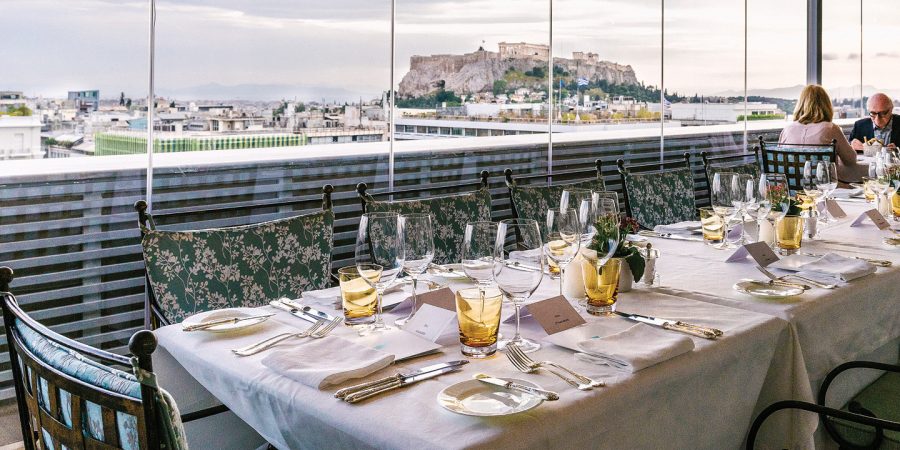
Tudor Hall Restaurant Hotel King George
What makes us Europeans? The European elections tested that existential question to the core, as well as the very relevance of the idea of Europe.
With immigration being the overarching theme dominating European politics, a few eminent Athenians gathered around a dinner table to seek answers to some pressing questions. Is Europe caught in an elite paralysis? Is this an opportunity to think anew, to sketch out what a different future might look like or will an outbreak of political imagination be viewed with suspicion? How do you create momentum for institutional reform and redefine the direction of the EU in the face of populism?
- The event: A dinner discussion on ‘European Identity’ organized by Athens Insider and The Hotel Grande Bretagne
- Where and When: At the Tudor Hall Restaurant Hotel King George. On May 9.
- The Participants: Ambassador Orla O’Hanrahan of Ireland, George Manginis, Academic Director, Benaki Museum, Harris Vlavianos, poet, translator and Head of Public Affairs, American College of Greece, Yiannis Zervos, Director, Athens Centre, Sophia Hiniadou-Cambanis, Head of Cultural Affairs, Hellenic Presidency. Maria Panayiotopoulou, Communications Director, Greek Festival, Alexia Kefalas, Correspondent for Le Figaro, Alberto Cano, representative of The New York Times. Here is an extract from the stimulating exchange of ideas that followed.
- Hosted by Tim Ananiadis, Managing Director-Hotel Grande Bretagne/Hotel King George and moderated by Sudha Nair-Iliades.
- Images: Ioanna Koulakou
Sudha Nair-Iliades: We’ve been holding these informal dinner discussions for the past seven years with Tim. The topics tend to be more political, which deviates a bit from the nature of our magazine, which is quintessentially a city magazine with an accent on art, food and travel. It is election season again and with Brexit looming, we thought this was as good a time as any to really investigate what it means to be European.
- Ambassador Orla O’Hanrahan
- George Manginis
- Harris Vlavianos
- Yiannis Zervos
- Sophia Hiniadou Cambanis
- Maria Panayiotopoulou
- Alexia Kefalas, journalist with Le Figaro and France 24
- Alberto Cano
- Tim Ananiadis
What defines us as Europeans? Does the definition of European only apply when it is in relation to the ‘other’? A non-European? And does it not apply in relation to each other?
Harris Vlavianos: In 2001, in Maastricht, there was this idea to invite twelve poets, each from every country joining Europe, to write a poem about Europe. The poet from Ireland was Seamus Heaney, the Nobel Laureate. And my poem, was entitled “Hotel Europa” after which the book was named. The point of my poem, and I think of the other poets too, was that it was a great occasion to celebrate Europe. It is very difficult now, in 2019 to think that all that enthusiasm, has evaporated.
To answer your question, can you exist without the other, as a writer without other writers? Can you write poetry without, let’s say, having Shakespeare in your mind. It’s impossible. So, every time they ask me my reply is, I’m a writer who writes in Greek. But I am European!
The poem I wrote for Maastricht was about the abduction of Europe by Zeus. And my point is that… in mythology we have the abduction of women from Phoenicia to Crete, but the European Union is not created by an abduction, but an agreement. Europeans wanted to be together. And also, if you think about it, the only way that Europe can survive between these huge powers like United States, Russia, and China, is to be united. I mean politically it doesn’t make sense to divided. From my point of view, what you have to emphasize, is of course the cultural connection of all the Europeans. It goes back centuries.
Ambassador, do you agree that this anti-Brussels sentiment is a reflection of a need for a leaner Europe. Less trickled down power from Brussel bureaucrats telling us what to do?
Ambassador Orla O’Hanrahan: There are unprecedented levels of support for EU membership in Ireland which has been an EU member state since 1973. The most recent poll on this issue, in May 2019, ahead of the European elections, indicated 93% of the population support EU membership, with the result for 18-24 year olds even higher at 96%.
The Irish people recognise the many benefits that EU membership has brought to our country, located, like Greece, on the periphery of Europe, and are very committed to making a strong contribution to the EU, its values and its future.
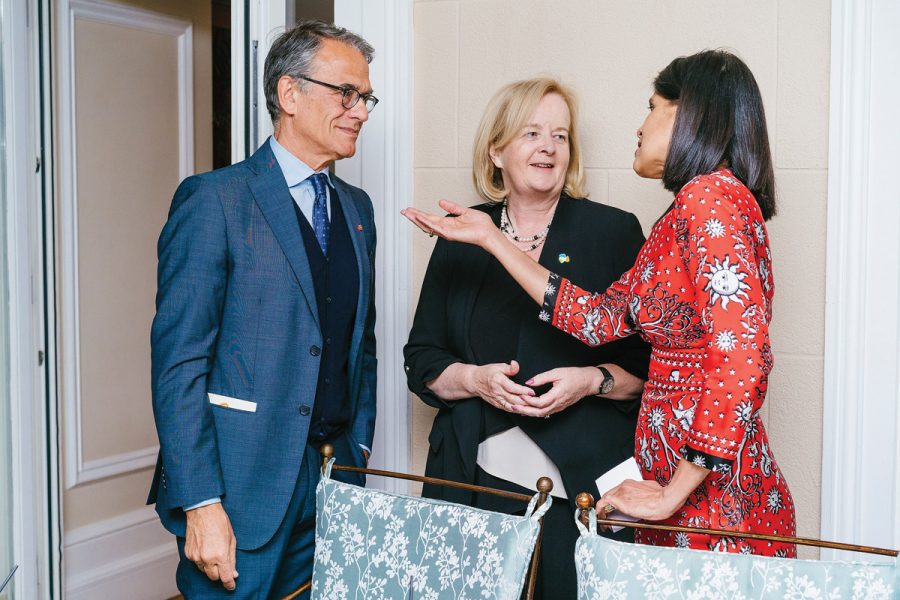
Harris Vlavianos, Ambassador Orla O’Hanrahan, Sudha Nair-Iliades
With Brexit looming, how is Ireland coping?
Ambassador Orla O’Hanrahan: While Brexit is not something that the Irish Government wants to see happen, we are planning for some time for all eventualities, including the possibility of no-deal. These preparations are across Government. The support and solidarity shown by all other EU Member States, including Greece, for the Withdrawal Agreement is deeply appreciated by our Government and people. Indeed, it is another factor in the current strong levels of pro-European sentiment. A priority is of course the protection of the Good Friday Agreement (GFA) signed in 1998 and a cornerstone for peace and stability in Northern Ireland.
Why do you think there’s been a surge in right-wing politics? And do you think this initial enthusiasm of Europe that we had is a flawed idea?
Alexia Kefalas: I think it is a teenage crisis. The middle-class across Europe want to show that they exist. The urban elite in big cities like Paris or London have opportunities, and account for a substantial part of their country’s GDP. They don’t need any politics. It is the middle class who live in the smaller towns and villages who want to be heard and seen, I really do think that it’s this middle class who voted against the European Union. In France, they have chosen the yellow vest to show that they want to be counted. But, in one way, I think it’s good because Europe needs ideas and opinions to build something new. It’s good to have this kind of strife, in one way, because it prompts us to remain united and to fight for the values we believe in.
Maria Panagiotopoulou: My daughter who lives in Paris is Greek, but she goes to protests in her yellow jacket. And she’s pro-European!
Harris Vlavianos: It’s sometimes easy to blame Europe for everything. But sometimes, the problems have to do with national policies, national politics. For example, the fact that the Greek state has been corrupt for years. That Greeks are the worst tax-payers in the world. It has nothing to do with Europe. It’s easy to blame them.
Alexia Kefalas: Yes, because Europe is to blame to some extent. When the countries decided to sign the European treaty, they had to give part of their sovereignty to the European Union. So, part of the sovereignty of each country… of Greece, of France, of Ireland, belongs to Brussels.
Harris Vlavianos: Yes, but you cannot have a United States of Europe without doing so.
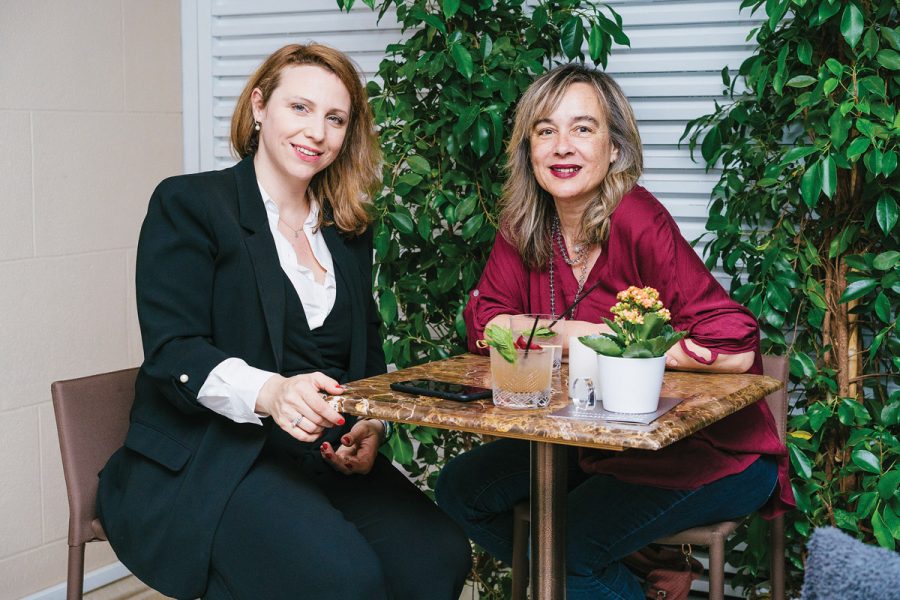
Alexia Kefalas – Maria Panagiotopoulou
Ambassador, do you think it was that ‘loss of sovereignty’ that Alexia mentioned that shored up support for Brexit?
Ambassador Orla O’Hanrahan: I believe that we need to be very careful how we define the narrative on Brexit – the EU may have its challenges, but at the end of day it is a vital and great project. Ireland shares these key European values and commitment to democracy and freedom including in the Western Balkans. At the end of the day, one Member State decided in 2016 to leave the EU and we respect that decision, however disappointing it was to us. We want to ensure that we have the best possible relationship at all levels with the UK in the future. We do believe that the best way forward, including protection of the GFA also, is to ratify the Withdrawal Agreement.
So what does it mean to be European?
Sofia Cambanis: Plurality, democracy, freedom, human rights, social protection are the basis of our European society. But we have to keep in mind that human dignity is not just about rights, it’s also about fairness. You can be European, you can be Asian, you can be Greek… but you have to be human first. This is what we should be struggling for. It is the pillar of our European culture.
Alberto Cano: Each of us has a cultural identity that is a product of our history and our wars, our own life story. Britain represents something in my cultural DNA as its part of my Spanish heritage and history, I grew up in Greece, I went to the Institut Français d’Athènes, my wife is German, and I identify with all these different cultures. So, we’re all European in some way. At some point our statesmen realised that we didn’t have to fight with each other or kill each other and that is how the idea of Europe as one entity was born, initially as a manufacturing and industrial union, then with more cultural projects and Erasmus, which has been a hugely successful experiment in letting young Europeans experience each other’s countries. Over the years though, I think Brussels lost the narrative. We need to go back to a more Middle Ages form of Europe, which was one big group, and then the regions.
Harris Vlavianos: Yes, but then there was a connection with the Papacy. Today, because of secularism, the church cannot be the connecting link, so we look for something else. From a historical point of view, we have to remember when the European Union idea emerged, of the union between France and Germany, it was the result of World War II. And it’s very important. We have not had a war in Europe since 1945. So in that sense it’s a great success. The Europeans, with the exception of Yugoslavia, haven’t had wars between all the states as we used to have over the centuries. But nationalism is always there. It’s dormant. And sometimes, it can be awakened. Samuel Johnson, the British man of letters, used to say that “nationalism is the refuge of every rascal”. It has always been around.
Maria Panagiotopoulou: Yes, but it’s something really new.
Harris Vlavianos: It’s new in the sense of the nation. But in the old days, it used to be more local. I mean, for example, in antiquity it was Athens, Sparta, Thebes and Corinth. There were regional rivalries. The idea of nationalism was born with The French Revolution when the idea of ‘La Patrie’ was launched.
Maria Panagiotopoulou: So how do you feel about it?
Harris Vlavianos: I’m just saying, we talked before about nationalism, like larger circle of families. You start with your family, then your friends, then the nation. What the European experiment is trying to say, is that you can go beyond the nation into something else called ‘Europe’.
Alberto Cano: Let’s say, if you are economically deprived, if you don’t speak languages and you don’t travel. And then you have a demagogue who comes at the right moment when he can awaken this fear in you, then, of course, you have the results of today. And the refugee crisis is, at the moment, a catalyst.
Tim Ananaidis: I agree. The financial crisis of the European Union was exacerbated by the immigration crisis. But if you look at the wider picture, this influx of immigrants within the European Union, compared to what this project had to face in other decades, is not as huge a challenge. Europe is rich, but it’s rich in traditions and institutions that goes back centuries. They are mature institutions. So, these structures that we have in Europe can very easily absorb the shock of immigration. It’s just that they haven’t been deployed to that effect. I think immigration is more a question of rhetoric. We could deal with it, if we wanted to.
Yannis Zervos: To go back to the question of identity. A European Identity is not something that is legislated and will take time to develop. The important thing is to have started this ‘journey of unity’ that will benefit each individual country that is a member. The adage ‘stronger together’ holds true in our current geopolitical status. It enables us to wield greater influence both economically and politically than before as individual countries. The feeling of a European Identity will grow stronger with each successive generation.
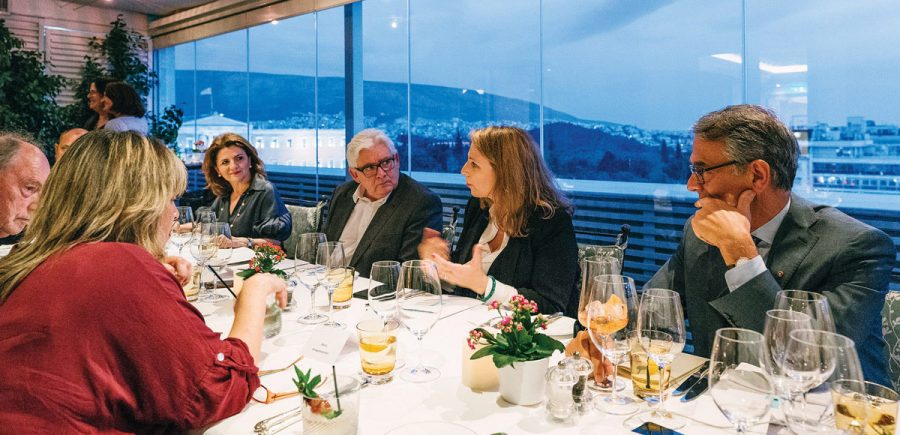
You mentioned catalysts, like the Erasmus movement. Do you think that the search for common links, like culture, is the key to getting the idea of shared history, of linkages?
George Manginis: Europe, as we have it around us, is something that did come out of many wars and a lot of bloodshed. And even if it is materialized as an economic union, even if it was perceived, perhaps too soon, as a political union, it has to be more than anything, a cultural union. People, historically, are used to living together – cosmopolitanism is not an unusual phenomenon in European history. Huge empires have existed before. The Roman Empire or the Hapsburgs lasted for centuries. So, there are formulas that can make this happen, political formulas, not just cultural. We then have to devise a cultural unity, something that bonds us together. It is an instinct which goes beyond religious and linguistic differences. A few years ago, a friend of mine wrote a book on the minority languages of Europe, which was a revelation: Europe is so diverse! Incredibly diverse!
Sophia Hiniadou-Cambanis: I agree. I feel very fortunate that I have the chance to see, hear, smell, taste and touch the world in new ways while preserving my national identity, being Greek. I believe that this is a great privilege. As George said, our common cultural heritage and its rich diversity is the base of our Union.
This is Europe’s strength today: The capacity to become a global actor without using hard power.
Harris Vlavianos: A very famous American philosopher, Martha Nussbaum, wrote a book entitled ‘Patriotism Versus Cosmopolitanism’. And she wrote about the values of humanism. She says: if you go to Jerusalem, in the cemetery, there are one thousand apple trees planted for German people who saved the life of a Jew in World War II, knowing that if they were caught, they would be shot. Why did they do it? Because of human ideas. It is a celebration of these one thousand victims, who saved the Jews despite the fact that they were German. So, there is this idea of humanism, how people can be united. But, apart from humanism, there’s also a long common history that stems from Antiquity, Greek, Roman, Renaissance. And I think we have to utilize that. I’ve always told my students to imagine the fate of Seferis, if he had written in English. The two major Irish poets, Joyce and Beckett actually chose Europe. It’s a great example of how two people who start in Dublin, find their life in Trieste or Paris.
Ambassador Orla O’Hanrahan: You know what they say about the edginess that comes into Beckett’s writing, that’s because Ireland’s on the edge of Europe!
There is of course great interest in Beckett and Joyce, but also our contemporary writers. I am proud that our team has led or partnered over 30 such events, across different sectors of the arts (including your National Theatre) in 2018 and I am delighted that a group of Greek companies is visiting Dublin this summer led by the Confederation of Greek Industry (SEV). The state visit of our President to Greece last year gave this work great impetus. We also have an active Greek-Irish Society here.
Yannis Zervos: When you’re looking at a place like Europe, it depends what country you come from, what you can relate to. When I was a child, growing up here in Athens in the fifties, and we travelled, we would say “I’m going to go to Europe!” We were not in Europe! Maybe geographically, but the Greeks did not consider their country European. So, this event that happened with the European Union, the greatest positive thing about it, was the freedom of movement! You could move! Also, you had freedom to work. What an incredible bonus! In fact, the European Union started this special program started by Melina Mercouri called ‘Cultural Capitals in Europe’. I worked for four years on a culture campaign in Europe, representing the city of Athens in Copenhagen, and Madrid, and Glasgow.
Maria Panagiotopoulou: I strongly believe that art can help towards a really united Europe. Being at the press office of the Athens and Epidaurus Festival for the last 20 years, I have seen how art affects people. When you attend a concert or a theatre performance from a foreign company you realize that we all share the same emotions, problems, concerns. Audiences can be trained through art to accept diversity, to respect another’s nations culture, habits and beliefs. See what happened with the refugees recently. Many Europeans were hostile towards them. It is not only a financial issue. It is also a matter of understanding the human nature despite nationalities and different backgrounds. Art talks directly to the heart and changes people in a profound way.
Sofia Hiniadou-Cambanis: I agree. The cornerstone of our European culture, as seen in the relief of 5th c. B.C. Athena in contemplation or in Rodin’s Thinker, is the constant quest for the spirit. Just after WWI, Paul Valery described, rather succinctly, the three elements on which European civlization is based: Athens, Rome and Jerusalem; the Ancient Greek spirit, the institutional heritage of Ancient Rome and the Judaeo-Christian doctrine. Those are the foundations of our Europe.
Alberto Cano: What Sophia said about the three pillars of European culture – the Greek component, it was actually lost for many centuries, and saved by the Arabs and the Muslims. They are the ones who saved Greek culture and translated it. Now we have this trend [to demonize the Muslims]. But at the time, the crazy ones were the crusading Christians.
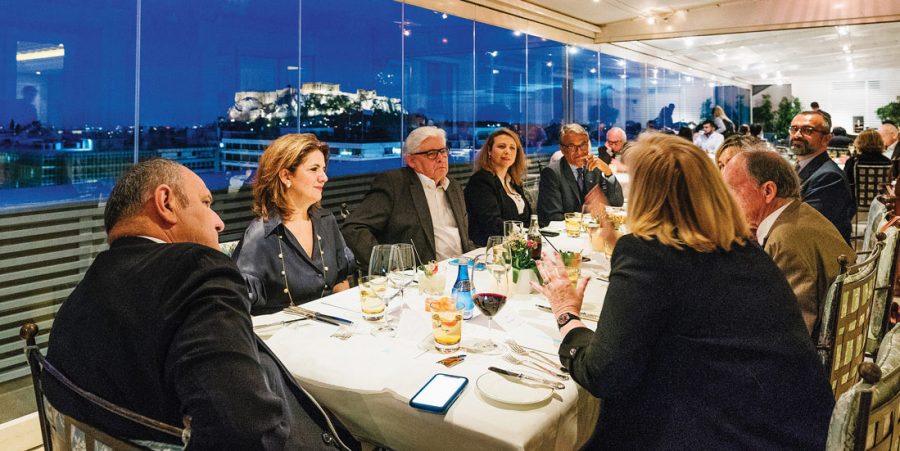
Do you think Europe should follow the American model?
Tim Ananiadis: From my perspective, from the Hotel Grande Bretagne, we’ve seen the nationalists, we’ve seen the communists, and we’ve seen the anarchists, and they all had one reason to be here: that was to be seen or heard. What distinguishes the American model from the European one, is the sentiment of national pride. Secondly, I think from the ‘relocation’ perspective, the US is very conducive to inter-state moves and job opportunities. Unfortunately, Europeans, are still very reluctant to move. However, that’s coming. And thirdly, bringing lesser nations into the mainstream, that is what we should do from a wealth perspective.
Ambassador, you have spent a lot of time in the US? Any thoughts on the Trans-Atlantic relationship?
Ambassador Orla O’Hanrahan: Having spent over ten years in the USA, I place great value on the transatlantic relationship between the EU and the USA. Both Greece and Ireland have significant Diasporas in the USA and this is something which is valued by our Government and citizens– most Irish people have a link of some kind with the USA. That said, there are challenges in the communication between the EU and USA – I recall the famous comment by Henry Kissinger – if I want to contact Europe, whose number do I call? Therefore we need to keep up this engagement and dialogue ongoing and hopefully this can strengthen as new Heads of EU Institutions take up their posts in the autumn and engage with the US Administration. I know that the US Ambassador here is very proactive in that dialogue, for example. At the EU level, efforts continue to enhance the relationship between the EU and the US, through the EU Delegation based in Washington DC. The main role of the Delegation is to provide information and understanding of EU policies to the US administration, led by the Head of the EU Delegation, Ambassador Stravros Lambrinidis, a Greek National who earlier this year succeeded David O’Sullivan, an Irish National.
George Manginis: There are ways of doing it. One is looking back into the past. The other day, I was looking at a painting showing King Otto’s arrival in Nafplion in 1830s Greece. And there is a black person dressed exactly like the Greeks in the picture, probably a freed slave. How much more diverse the Greek world was than we think, how many languages were spoken within Greece! I keep on stressing “the empire factor” because historically it can help us deal with the idea of strangers living together. We have been taught at school a monolithic view of our existence, which is fake. We are taught fake history. We are not taught about the Jews, the Albanian speakers who were either Christians or Muslims, we are not taught about the Muslims who were either Turkish or African slaves… There were a lot of different peoples with whom we’ve lived for centuries. It’s a question of education. We have to start being taught history properly. And other European countries have to be a part of the curriculum. If we want to unite our countries, we have to teach our children the history of Europe, which has to start from the Neolithic Age, not from Charlemagne, or Ancient Greece. All the way back to the agricultural revolution. If we want to create a sense of belonging, we have to teach it. So that’s one way: going back in time. The other way is realizing and accepting how international contemporary culture is. Our young, today’s youth, are wonderfully amoralistic and non-partisan when it comes to their identity.
Maria Panagiotopoulou: We take for granted the freedom Europe gave to us. Young children, like my daughter 21 and my son 18, do not realize what it means to travel easily, to go abroad on the Erasmus program, to be able to work in another country. At the moment that Greece is facing such a big crisis, being able to find solutions within Europe gives hope and prospective. The problem is that Europe seems sometimes impersonal. Huge committees, nominees that are totally unknown, policies that do We take for granted the freedom Europe gave to us. Young children, like my daughter 21 and my son 18, do not realize what it means to travel easily, to go abroad on the Erasmus program, to be able to work in another country. At the moment that Greece is facing such a big crisis, being able to find solutions within Europe gives hope and prospective. The problem is that Europe seems sometimes impersonal. Huge committees, nominees that are totally unknown, policies that do not reach the large audiences of the different countries. Therefore, there is skepticism among young people concerning united Europe. For us the older generation, that we remember the previous situation, it is clear that there has been a progress in our life. In our everyday life.
How do we get our youth to be more politically engaged in Europe?
Alexia Kefala: We have failed to highlight the positive aspect of Europe. What is sexy for the youth.
Ambassador: The European elections are a real challenge. It’s not a huge challenge, but it is a challenge. What I have noticed, though, is that their generation is really engaged in social issues, you know same sex marriage, the liberalization of culture, but obviously they identify as Erasmus.
And do you think politicians have caught on to that, and realized that if they want the young vote, they need to address these social issues?
Ambassador Orla O’Hanrahan: I think the younger politicians are definitely in touch with youth culture.
Tim Ananiadis: If you want social engagement, you need to allow the youth to be able to vote off their mobiles. If not, you cannot get them to go down to a voting booth.
Ambassador Orla O’Hanrahan: The youth are more concerned about opportunities, especially in Greece with the brain drain.
Maria Panagiotopoulou: I can address this issue because I have a daughter who is 21 and a son who is 18. My son studies mathematics, and I suppose for students like him involved in science, one thing I understand is that they want to go abroad. That’s the only way that they can somehow expand their knowledge, and have the opportunity to do a really good job, because there’s no hope at the moment in Greece.
But this incredible freedom of movement that we have, Europe could draw inspiration from the capacity to form a positive narrative that embraces migration instead of treating it mainly as a threat.
As the new continent of immigration, Europe will increasingly need that narrative.

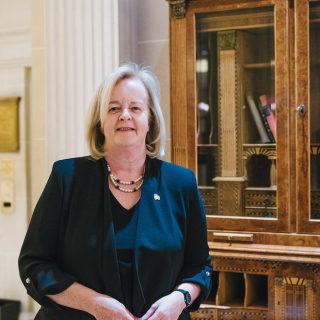
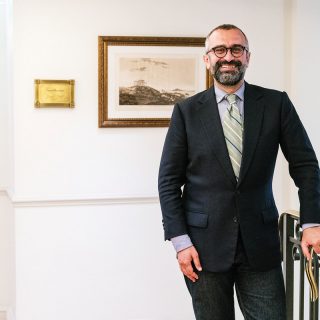
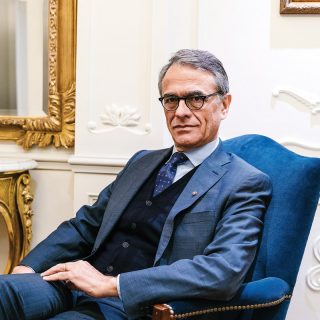

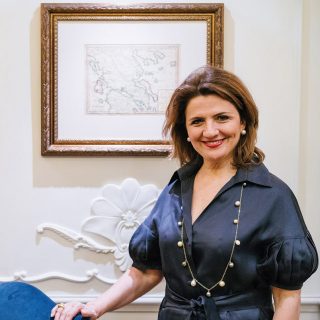

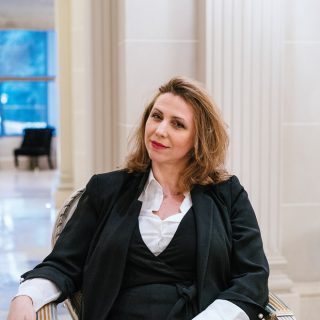
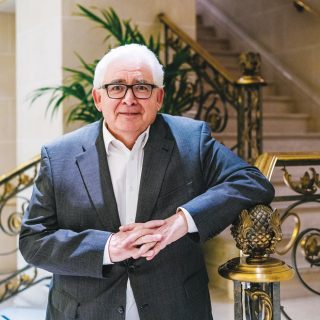
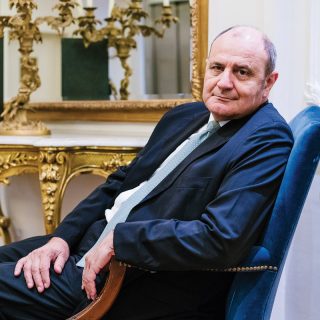
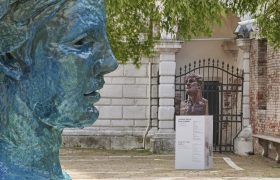


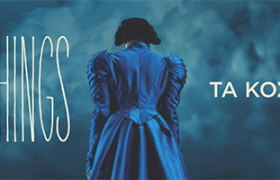

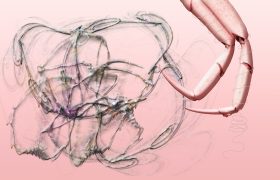
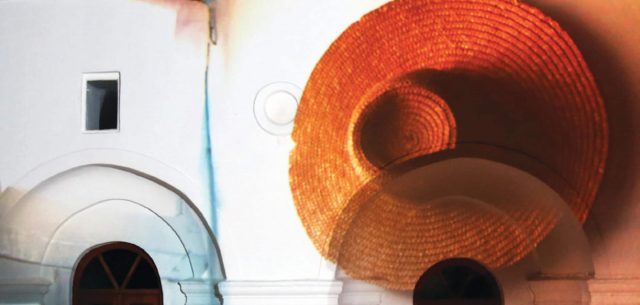
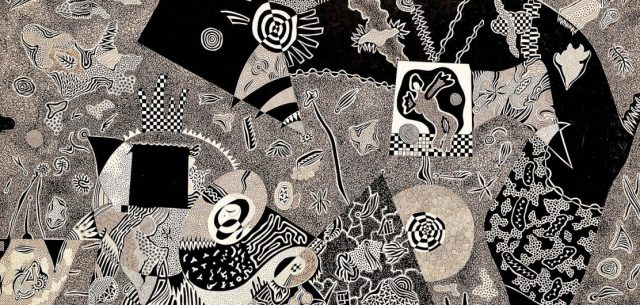





Leave your comments ...